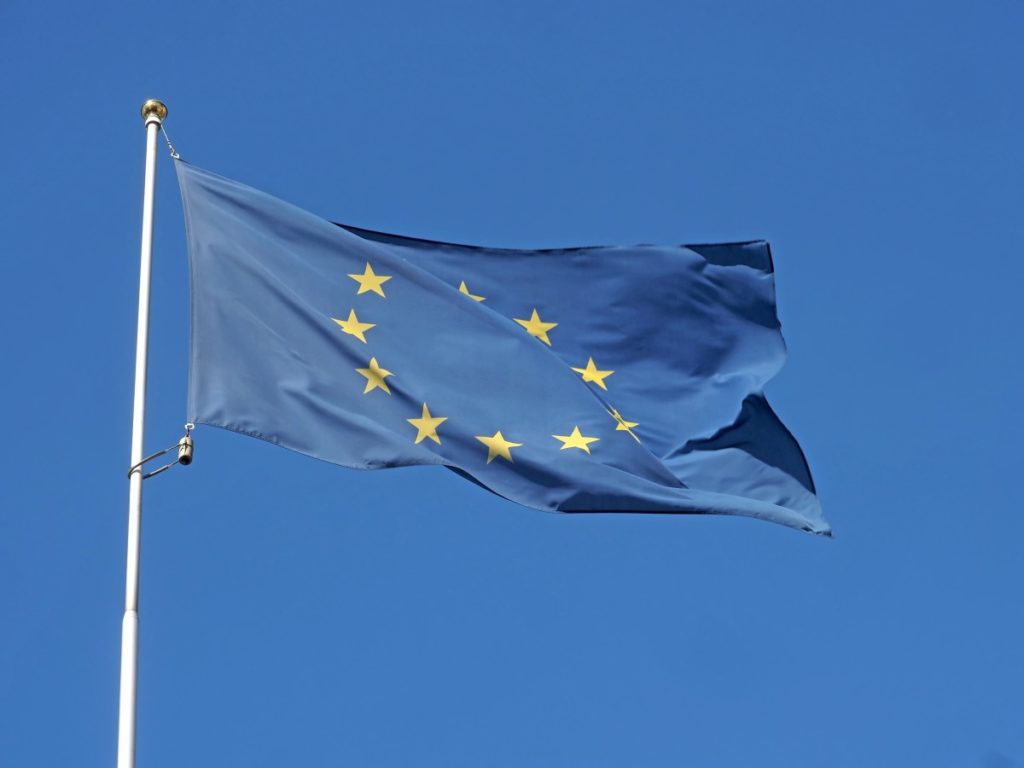- +352 444 222
- Monday-Friday 12:00-18:00
- 20, avenue Marie-Thérèse, 2132 Luxembourg


On Wednesday, November 18, 2020, the National Assembly’s European Affairs Committee adopted a report on the new European Public Prosecutor’s Office. Based in Luxembourg, it is chaired by Laura CODRUTA KÖVESI, formerly head of Romania’s National Anti-Corruption Directorate and the new body’s first European General Prosecutor. The Senate has already passed the bill on first reading, so the Assembly will examine the new text on December 8.
In a 2011 Communication, the Commission argued that “Whenever the Union’s financial interests are harmed, all citizens, as taxpayers, become victims and the implementation of the Union’s policies is jeopardized.”1)https://eur-lex.europa.eu/legal-content/FR/TXT/HTML/?uri=CELEX:52011DC0293&from=EN Every year, this loss amounts to several hundred billion euros.
Illegal activities affecting the Union’s financial interests can take many forms: corruption, money laundering, misappropriation of European funds or VAT fraud. VAT is the French government’s main tax revenue: in 2018, it accounted for 154 billion euros, or around 53% of total revenue. Representing 1,000 billion euros at European level, this financial resource is cut by 150 billion euros every year .2)https://ec.europa.eu/taxation_customs/sites/taxation/files/report_on_eu_customs_enforcement_of_ipr_2017_en.pdfAnd with good reason: it’s relatively easy to get around its contribution. In principle, intra-Community supplies are exempt from VAT provided they meet a number of conditions. Intra-Community acquisitions, on the other hand, are subject to the VAT rate in force in the country where the goods were delivered.
For example, when a Spanish company sells goods to a German company, the Spanish company does not have to include VAT in its selling price, whereas the German company must apply VAT at the German rate to the goods it receives.
This relatively simple system has many flaws, and the carousel fraud technique is one of the most widespread. According to figures released by the European Commission, this alone represents a loss of 45 to 53 billion euros per year, out of the 168 billion euros lost each year by member states.3)https://ec.europa.eu/commission/presscorner/detail/fr/IP_15_5592 This involves moving goods between several companies in different European countries.
In the above example, the Spanish company has delivered a good to the German company for €100,000 excluding VAT, but the latter resells it to another company located in the same country, inclusive of VAT. It therefore charges VAT which it does not refund to the Treasury, and the third company can claim this VAT back. In the end, it will be shared between all circuit participants.
Protecting the Union’s financial interests against fraud and other forms of abuse is therefore considered a priority requiring the adoption of effective measures. The European Public Prosecutor’s Office is due to take up its duties in November 2020. It was created by Council Regulation EU 2017/1939 of October 12, 2017, and is dedicated to the investigation, prosecution and referral for trial of offenses affecting the EU’s financial interests, including cross-border VAT fraud in excess of €10 million. The offenses concerned are defined in Directive 2017/1371, known as the “PIF” Directive adopted on July 5, 2017. The latter was transposed into domestic law by an ordinance dated September 18, 2019.4)Ordinance No. 2019-963 of September 18, 2019 on fraud affecting the financial interests of the European Union through criminal law.
Twenty-two countries have agreed to join this unprecedented reinforced cooperation. Romania’s Attorney General LauraCODRUTA KÖVESI, already renowned for her anti-corruption work, has been appointed to head the office for a renewable 7-year term. With its own legal personality, the European Public Prosecutor’s Office is organized on two levels: centralized and decentralized. The centralized level brings together a collegiate body responsible for defining the general policy of the Public Prosecutor’s Office and supervising investigations. It brings together 22 prosecutors from each participating member state, headed by the Attorney General. The decentralized level has a more operational mission, entrusted to delegated public prosecutors in each Member State. The latter, in a similar way to the public prosecutors we have in domestic law, can initiate public proceedings against the perpetrators and accomplices of offences falling within the European Public Prosecutor’s jurisdiction. In the event of a conflict of jurisdiction, it is up to the national authorities to decide whether to hand the case over to the delegated prosecutors or to the prosecution authorities existing under national law. It is also an independent body, as the Head of the European Public Prosecutor’s Office emphasized on the occasion of her installation: “I solemnly undertake to exercise my functions with complete independence in the interests of the Union as a whole, and not to seek or accept instructions from any person or entity outside the European Public Prosecutor’s Office”.5)https://curia.europa.eu/jcms/upload/docs/application/pdf/2020-09/cp200118fr.pdf
This new system fills the gaps and limits created by the fragmentation of the various repressive regimes, whose competence remained in the hands of the Member States, resulting in unequal repression. To this day, there are still differences in the way certain offences are criminalized. As proof of this, Germany does not recognize the principle of corporate criminal liability: a company cannot therefore be convicted of misappropriation of public funds or corruption. The rate of conviction and prosecution can therefore vary from one country to another, leading to situations that favor forum shipping. The creation of the European Public Prosecutor’s Office will harmonize law enforcement thanks to the investigative and investigative powers of the delegated prosecutors.
The latter feature a hybrid function. They have the prerogatives of the Public Prosecutor under French law, on the one hand, and the powers of the examining magistrate, on the other, because cases of VAT fraud or money laundering are usually the result of organized, cross-border crime. They are therefore able to carry out criminal investigations and prolonged wiretaps. Measures restricting liberty may also be taken with the intervention of the liberty and custody judge. As an independent body, the Deputy European Public Prosecutor is not subject to the hierarchy of the French Public Prosecutor’s Office and cannot therefore be forced to implement guidelines issued by the Minister of Justice. He will nevertheless have to implement the guidelines decided by the College of Public Prosecutors.
This new body also complements and supports the action of the various pre-existing European institutions, whose resources were limited. The European Anti-Fraud Office (OLAF) was set up on April 28, 1999, with the aim of reinforcing the scope and effectiveness of the fight against fraud and all other illegal behavior affecting the financial interests of the European Union.6)https://www.economie.gouv.fr/dnlf/presentation-lolaf-office-europeen-lutte-contre-fraude It is empowered to lead administrative investigations: between 2010 and 2017, it recommended the recovery of more than 6.6 billion euros. for the EU budget and presented over 2,300 recommendations for judicial, financial, disciplinary and administrative measures, which member states are invited to follow. However, as it has no power to initiate criminal proceedings, its action is limited to ensuring that States are willing to implement the recommended sanctions.
The European Union’s law enforcement agency, better known as Europol, is also involved in this fight. This police agency, set up in 1999, specializes in fighting crime in all its forms, and facilitates the exchange of intelligence between national police forces on terrorism and international crime7)https://europa.eu/european-union/about-eu/agencies/europol_fr#en-bref. It does not, however, have the power to conduct police investigations or prosecutions itself. Eurojust should also be mentioned as a body for European judicial cooperation. Nor can it carry out investigations or prosecutions. The European Public Prosecutor’s Office joins these law-enforcement bodies, and its prerogatives enable effective collaboration, faster information exchange and the opening of investigations.
Supporters of the European Public Prosecutor’s Office are therefore waiting with bated breath for its imminent implementation. However, the first difficulties are beginning to surface. The lack of resources is the first major obstacle. Laura CODRUTA KÖVESI, in an interview given at the beginning of the summer, recently denounced8)https://fr.euronews.com/2020/07/06/laura-codruta-kovesi-le-parquet-europeen-manque-de-ressources-et-a-pris-du-retard, the lack of financial and budgetary resources as the main obstacle to tracking down offences against the EU budget. At the time, she also referred to the delay in appointing the European public prosecutors who were to make up the College of Public Prosecutors. The latter, essential to the functioning of the regulatory framework within which the Public Prosecutor’s Office must operate, were nevertheless appointed a few weeks after his statements at the end of July.9)https://www.consilium.europa.eu/fr/press/press-releases/2020/07/27/eu-public-prosecutor-s-office-eppo-council-appoints-european-prosecutors/
This new vision will inevitably require adaptation in domestic law, even though the Regulation setting up the European Public Prosecutor’s Office is directly applicable. The Code of Criminal Procedure is expected to be adapted to incorporate the actions of the Deputy Public Prosecutor into the investigation and trial process. This adaptation would not only preserve the sovereignty of States by leaving the prosecution to a national magistrate, limiting its scope to certain offences only, and leaving it to national courts to decide, but would also promote European integration by protecting the interests of the EU budget.
In conclusion, this body confirms the legislative move to set up a European criminal legal framework. In parallel, the European Union’s Sixth Anti-Money Laundering Directive (6AMLD) will come into force in member states on December 3, 2020. It must be implemented by June 3, 2021. It also harmonizes the definition of money laundering throughout the European Union. It will also introduce specific requirements for information sharing between jurisdictions.
Although it is not the European Union’s vocation to draw up a European criminal code, it does aspire to harmonize member countries’ legislation on the prosecution and punishment of criminal offences. The European Public Prosecutor’s Office provides a vital boost to this aspiration.
All that remains to be seen is whether it will live up to these ambitious expectations.
[+]
| ↑1 | https://eur-lex.europa.eu/legal-content/FR/TXT/HTML/?uri=CELEX:52011DC0293&from=EN |
|---|---|
| ↑2 | https://ec.europa.eu/taxation_customs/sites/taxation/files/report_on_eu_customs_enforcement_of_ipr_2017_en.pdf |
| ↑3 | https://ec.europa.eu/commission/presscorner/detail/fr/IP_15_5592 |
| ↑4 | Ordinance No. 2019-963 of September 18, 2019 on fraud affecting the financial interests of the European Union through criminal law. |
| ↑5 | https://curia.europa.eu/jcms/upload/docs/application/pdf/2020-09/cp200118fr.pdf |
| ↑6 | https://www.economie.gouv.fr/dnlf/presentation-lolaf-office-europeen-lutte-contre-fraude |
| ↑7 | https://europa.eu/european-union/about-eu/agencies/europol_fr#en-bref |
| ↑8 | https://fr.euronews.com/2020/07/06/laura-codruta-kovesi-le-parquet-europeen-manque-de-ressources-et-a-pris-du-retard |
| ↑9 | https://www.consilium.europa.eu/fr/press/press-releases/2020/07/27/eu-public-prosecutor-s-office-eppo-council-appoints-european-prosecutors/ |
Dear users, on 15/06/2022 Internet Explorer will be retiring. To avoid any malfunctioning, we invite you to install another browser, such as Google Chrome, by clicking here, or the one of your choice.
Please check this before contacting us in the event of a problem.
